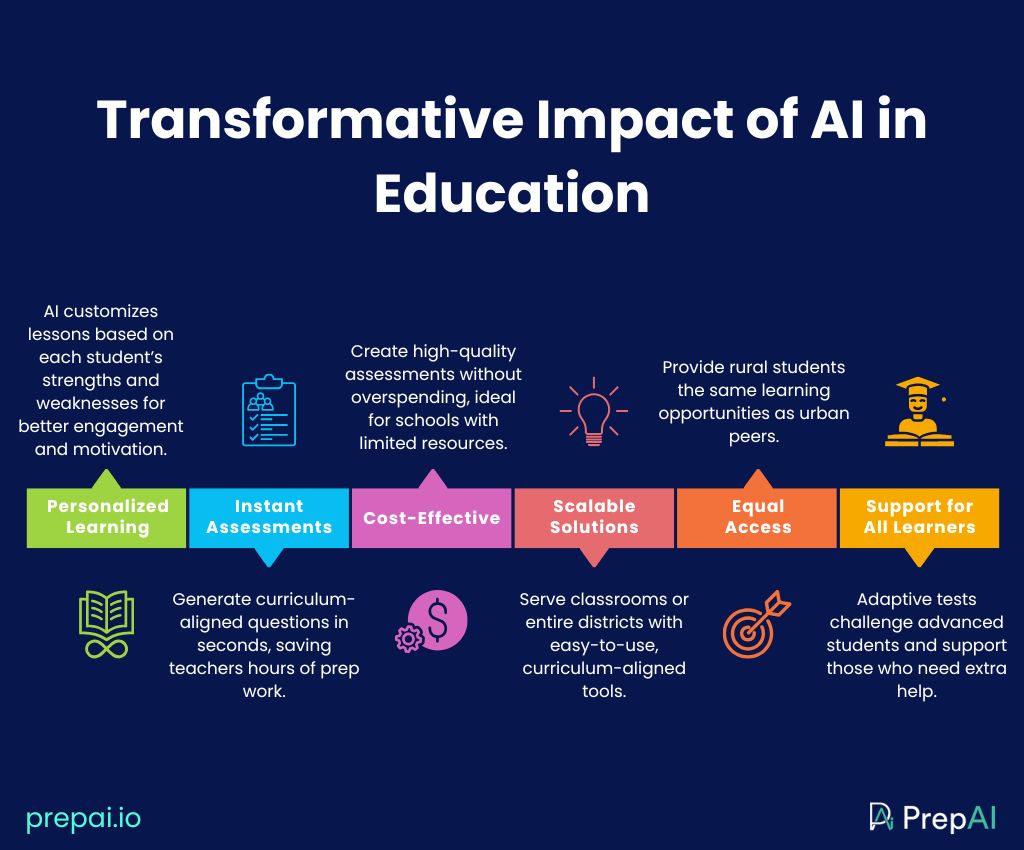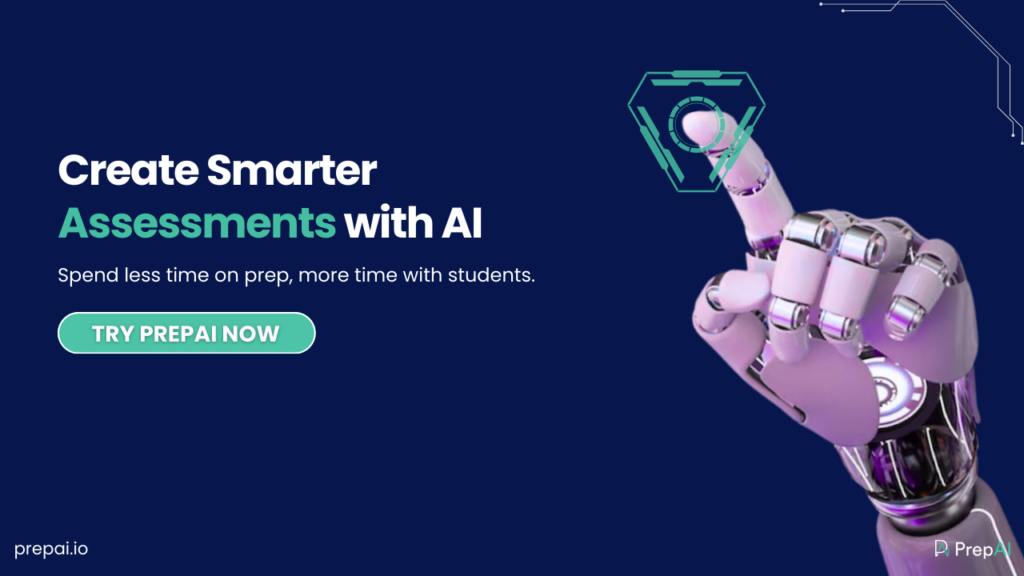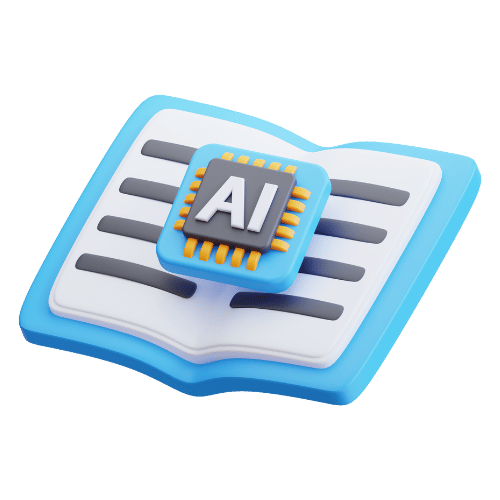AI-generated high-quality assessments refer to assessments, like quizzes or exams, generated by artificial intelligence systems. These assessments are accurate, relevant to learning objectives, well-organized, and often a bit more engaging than a traditional assessment. Let’s understand more about how AI tools design high-quality assessments and impact learning.
Recent advancements in artificial intelligence (AI) technology are forecasted to exceed a staggering $1,811.8 billion by the year 2030. It has brought unbounded possibilities to almost every field, and education is no exception. The educational landscapes in K-12 and higher education have radically changed, and as a progressive agent of change, AI in education is a tool that can increase teaching and learning tremendously.
AI can play a bigger role in the development of LICs (low-income countries). Those LICs with a strong foundation could prefer leapfrogging strategies, while those without a strong foundation may prefer to draw learning and acquisition prescriptions. Using AI is an effective instrument that helps in measuring learning objectives, spotting gaps, and directing instructional methods. However, developing evaluations that are curriculum-aligned, equitable, and successful has always required a significant investment of time and resources, particularly in areas where schools have high student-teacher ratios and limited funding.
AI-powered assessments Tools like PrepAI are revolutionizing how educational institutes increase productivity, make choices, and spur innovation. Actually, AI can significantly increase productivity in areas like lesson planning and curriculum development, which account for 45% of a teacher’s responsibilities. Let’s understand how AI in education will revolutionize educators’ tasks by reducing their stress level and help students to enhance their level of understanding and gain deeper knowledge on various subjects.
Limitations of Traditional Assessments
Teachers and schools encounter a number of hurdles by relying exclusively on traditional assessments.
Time intensive
It takes hours to prepare quizzes, tests, and assignments when assessments are created manually. This time could be spent teaching lessons or engaging with the students to help them learn and grasp.
Limited variety
It is tiring and probably impossible to consistently create a plethora of question types (MCQs, short answers, higher-order thinking questions) within the constraints of standard assessments. The quiz generators can help educators prepare skill-based assessments, competency assessments, and more that let students gain knowledge on various subject topics.

High costs
Many standardized testing services and professional assessment creation services can be prohibitively expensive for many schools, to the point it may render the assessment services unusable for schools.
Scalability challenges
With larger class sizes and students with varying abilities, constructing assessments suitable for everyone becomes a probative challenge and, absent automation, impossible to effectively administer.
Transformative Impact of AI in Education
AI test makers for teachers are causing significant variations in education in terms of how students learn and how teachers teach and manage their classrooms. AI assists both students and educators, providing a more individualized, efficient, and engaging learning opportunity. For educational institutions, AI can work as a game changer, allowing them to increase education quality, cut down on administrative tasks, and make learning available to everyone. Even countries like Africa can effectively plan to integrate AI because of its user-friendliness, accessibility, and wider array of uses. Using AI-powered assessment tools like PrepAI in schools and institutes can create:
Personalized Approach to Learning
One of the most remarkable ways AI is influencing education is by customizing learning for every student. AI assesses a student’s strengths, weaknesses, and progress to modify the lessons. Customizing their lessons prevents students from getting bored, allowing them to focus on actual learning. If educators are only repeating how to do something, they can feel overwhelmed with content, making students unable to learn and reducing their interest in class.
For instance, AI may notice that a certain student is struggling with algebra but doing well with geometry and therefore will focus more on providing teaching, practice, and momentum on algebra while still having the student do work on geometry. Using question generators from text can help educators create assessments for students in a variety of formats (MCQ, true/false, HOTS, subjective, quizzes) that help them get a better hold on the subject. This type of individualized schooling creates improvement at the student’s pace while positively impacting the student’s overall learning motivation.
Instant Assessment Creation and Cost Effectiveness
With affordable assessment tools like PrepAI, teachers can upload lesson notes, textbooks, or any digital resources and, in seconds, generate a variety of questions aligned with a curriculum. In just minutes, educators can assimilate what used to be hours of preparation, affording them more time to attend to teaching and engaging students, rather than just doing administrative chores. These platforms support diverse question styles, including MCQs, short answers, and higher-order thinking, which allows for assessments to be created efficiently, conveniently, thoughtfully, and diversely, reflecting various levels of learning.
These tools generate high-quality assessments for each student in a more economically viable and attainable way. Now, regardless of the size of the school, including private or larger public institutions with limited resources, they can consider creating professional-quality assessments without being burdened financially. Teachers can develop more consistent assessment quality while not compromising or overspending time and effort.
AI tools are Scalable for Schools and Regions
These cost-effective AI tools are scalable because they are platform equipped to generate and manage assessments for thousands of students. Tools like PrepAI can generate assessments for a classroom or a sizable school district. These tools even come with systematic curricula of different countries, like CBSE, CAPS, CBC, ICSE, and more. Not only teachers, but also students can use such tools easily. They just have to add their question, which can be in any format (text, video, audio, link, and any other source), and the tool will instantly create an assessment for the student.
For example, a student in the countryside without access to a wide range of teachers can use AI learning tools to receive the same personalized instruction as her peers studying in other cities. It offers greater access to learning and would level the playing field among learning, ensuring equity in learning and a greater chance to succeed for all students.
Support to Diverse Learners
AI assessment tools are designed to help all types of students because every learner is different. It can track a student’s emotional response to lessons so that they can be assisted further if the AI senses frustration or stress. With AI, educators can craft tests that increase in difficulty level, so the more advanced learners are challenged appropriately without the less advanced being held back. AI can also create various question types, from multiple-choice to open-ended, to accommodate various learning strengths, whether analytical, creative, or visual.
It can also help educators conduct online exams of the students and monitor patterns of student performance. For instance, if a student persistently gets problem-solving procedures wrong, teachers are given specific insights to provide extra help. New technologies are also making it possible for AI to detect emotional signals, triggering early intervention before learning gaps increase.

Conclusion
AI-powered assessment generators, or test makers, for teachers represent an absolute shift in educational assessment development these days. Besides improving efficiency exponentially, these tools also assist with accelerating time-to-market and delivering custom learning experiences for students.
AI systems will also be designed to become increasingly transparent while promoting fairness, data protection, and respecting regulations that protect the rights of students. Thus, tools like PrepAI create opportunities for personalized growth, ensuring no learner is left behind, regardless of their pace, ability, or background.



